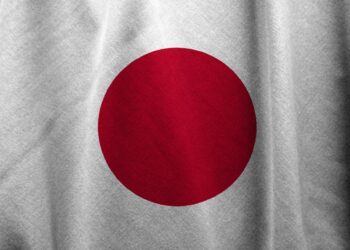The Nigerian Official Selection Committee (NOSC) has nominated the Hausa-language epic “Mai Martaba” for the International Feature Film (IFF) category at the 97th Academy Awards. Directed and produced by Prince Daniel, the film delves into the intense themes of power, love, greed, and betrayal within an ancient African kingdom. By placing women in positions of influence, it explores the societal push toward diverse and inclusive leadership—a theme relevant not just in cinema but in global discourse. The NOSC praised the film’s commitment to cultural diversity and its captivating technical prowess, signaling it as Nigeria’s strongest entry yet.
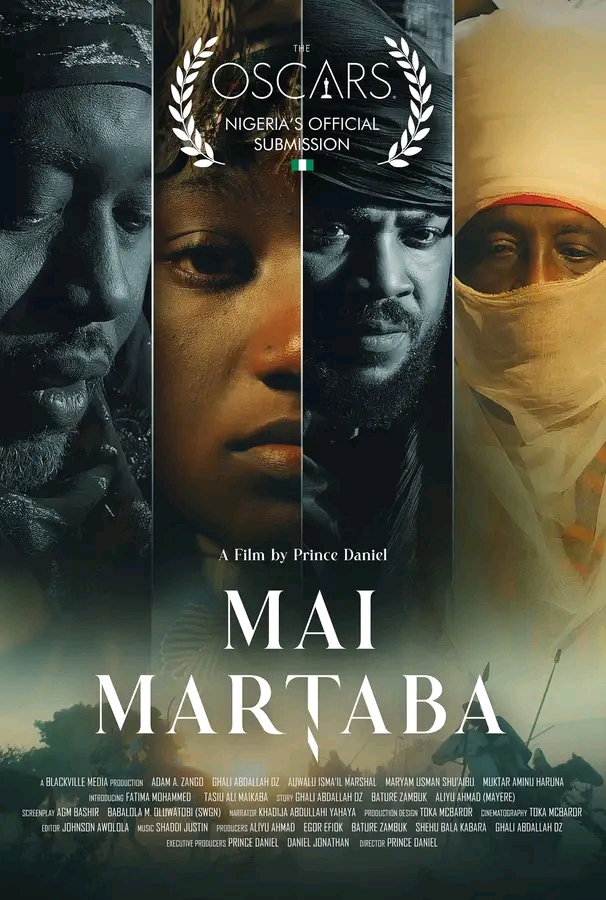
A Committee of Giants in Nigerian Cinema
This nomination comes from a star-studded committee featuring some of Nollywood’s brightest stars and pioneers: Stephanie Linus, the chair and celebrated actress; Dr. Victor Okhai, the President of the Directors’ Guild of Nigeria (DGN); industry icons Omotola Jalade-Ekeinde, Andy Amenechi, Yibo Koko, Izu Ojukwu, and Emem Isong. The selection of “Mai Martaba” was not only a nod to its technical quality but a choice driven by its powerful themes, resonating with the committee’s vision for Nigerian cinema.
“Mai Martaba” transports viewers to an ancient African kingdom, bringing the dramatic themes of power, love, greed, and betrayal to life. The story revolves around the Agadashawa ruling clan, whose internal power struggle disrupted a flourishing trade empire, capturing the highs and lows of a historic African civilization. Shot on location in Daura, Katsina State, Nigeria, this film doesn’t just entertain; it educates, making it a fitting representation of Nigeria’s diverse cultural landscape. But does this regional focus stand a chance on a global stage?
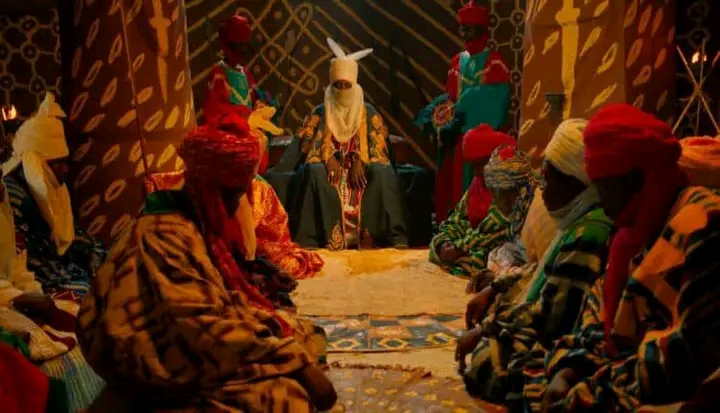
Nigeria’s Oscars Journey So Far
Since the IFF category’s inception as the “Best Foreign Language Film” decades ago, Nigeria didn’t make its first submission until 2019, a surprising delay for Africa’s largest film industry. Let’s dive into Nigeria’s previous submissions and the hurdles they faced on their Oscar journeys.
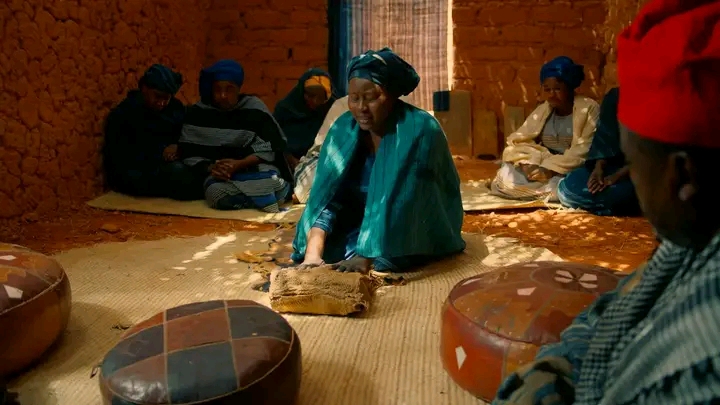
Lionheart – Nigeria’s First Attempt Hits a Language Barrier
Directed by Genevieve Nnaji and produced by Chinny Onwugbenu, Lionheart made history as Nigeria’s first Oscar submission for the 92nd Academy Awards in 2020. However, it was rejected for not meeting the 50% foreign language requirement, a ruling that highlighted the Academy’s outdated views on language diversity. Despite containing significant dialogue in Igbo, its use of Pidgin English didn’t count as “foreign” at the time, sidelining Lionheart from the competition. Streaming on Netflix today, the film tells the story of a woman who steps up to save her father’s company, a Nigerian tale of resilience that unfortunately didn’t align with the Academy’s criteria.

The Milkmaid – An Oscar-Recognized, Yet Overlooked Entry
Nigeria’s second Oscar submission, The Milkmaid, directed by Desmond Ovbiagele, followed a Fulani milkmaid’s harrowing journey in rural sub-Saharan Africa as she confronts religious extremists in search of her sister. This 2020 film was the first Nigerian submission accepted by the Academy, but it failed to make the final shortlist. While The Milkmaid brought Nigeria a step closer, it also underscored the Academy’s tough competition and selective process.
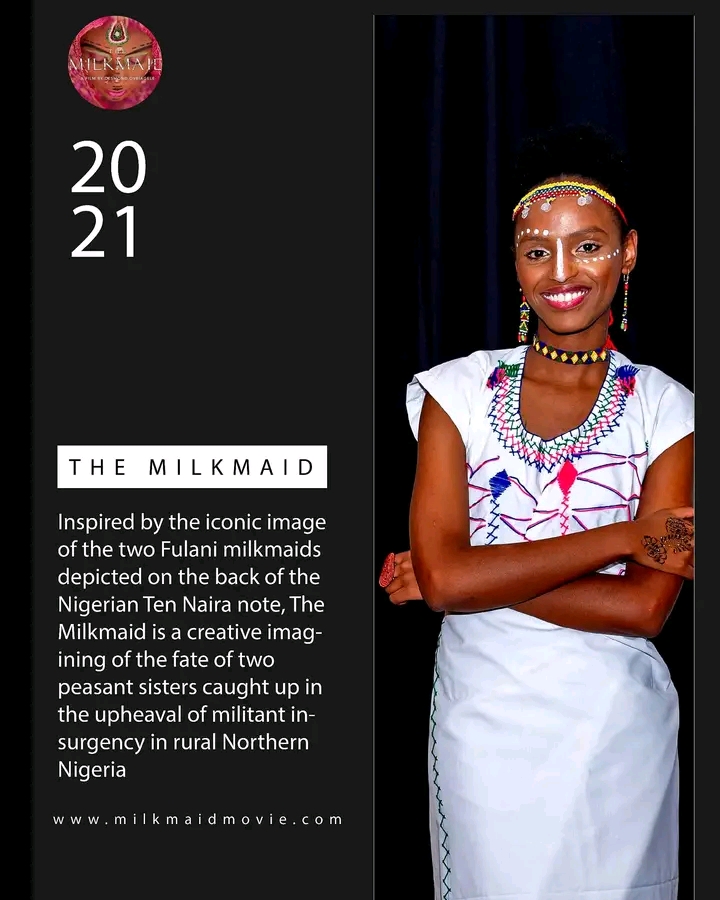
Mami Wata – Breaking the Language Barrier
CJ Obasi’s Mami Wata, a black-and-white Pidgin English film, marked Nigeria’s first Oscars submission after a two-year hiatus. Finally, Pidgin was acknowledged as a foreign language thanks to efforts by NOSC’s former head, Chineze Anyaene-Abonyi, a win that signaled a major shift in language recognition. Set in a fictional village, Mami Wata dives into the supernatural as villagers clash with the goddess’ intermediary.

The Big Question: Is Nigeria Ready for an Oscar?
Despite these victories, Nigeria’s film industry continues to face obstacles. Hollywood standards and Western-centric selection criteria often sideline African narratives, especially those told in native or creole languages like Pidgin English. The rejection of Lionheart over language demonstrates this bias, raising questions about the inclusivity of the Oscars’ “International” category. Even with The Milkmaid and Mami Wata making it past initial barriers, the path to securing a nomination remains rocky.
But the real challenge may lie closer to home. The Nigerian film industry, despite its remarkable output, suffers from funding issues, limited distribution channels, and political interference.
While Mai Martaba could resonate globally, a major nomination or win will depend on whether Nigeria’s creatives receive the support and infrastructure they need to compete effectively. With an international platform like the Oscars, Nigeria has a chance to redefine its cinematic narrative, if it can overcome the internal struggles first.
With the Oscars set for March 2, 2025, Mai Martaba carries the hopes of Nollywood on its shoulders. Whether it will break the longstanding pattern of setbacks and finally bring Nigeria an Oscar nomination, or perhaps even a win, is a tale yet to unfold.



